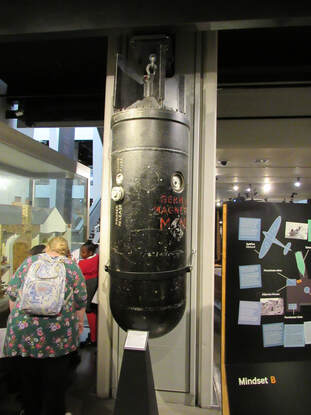 Today is the 75th Anniversary of the discovery and liberation of the Dachau Concentration Camp a few miles outside of Munich, Germany. Begun in 1933 by Heinrich Himmler, it would terrorize over 200,000 Jews, Poles, Czechs, Russians, Gypsies, Slavs, disabled men, women, and children, political leaders, and more than 3,000 Catholic Priests during its twelve-year existence. More than 40,000 would die from outright murder, starvation, sickness, beatings, or other brutalities. When it was found, the German SS had abandoned the facility and left more than 32,000 sick and starving prisoners behind. The US Seventh Army assumed responsibility for the camp, treating the sick and starving prisoners until they were able to leave. We should never forget. I read a book this week about the German submarines (called U-boats, short for Unterseeboot) in the North Atlantic that were disrupting the shipping of food, fuel, and supplies from the United States to Britain. The war between Britain and Germany had begun with the invasion of Poland in September of 1939, but it was with the fall of France in the summer of 1940 that Britain had been forced to rely on transatlantic shipments for all of her oil, most of her raw materials and much of her food and supplies. In total, a 3,000-strong merchant shipping fleet had brought 68 million tons of imports to the country each year, of which 22 million tons was food. In the fall of 1940, hoping to starve England into submission, German naval high command authorized a total blockade of Britain, giving U-boat commanders the mandate to attack ships without warning or prior approval from superiors. Five years earlier, Germany had signed an agreement barring this kind of unrestricted use of submarines as weapons of war, but that agreement had been quickly forgotten. The U-boats became very good at achieving their goal, mostly due to one man: Karl Doenitz, the Commander of the U-boat fleet. Doenitz had been a U-boat Captain and believed fervently that defeating the ability of Britain to receive goods from America would win the war for the Third Reich. To that end, he helped develop and mandate attack strategies for U-boat commanders to use against the large convoys that Britain and the Allies deployed for crossing the Atlantic. It was Doenitz who created and implemented the infamous “wolfpacks” that hunted the northern sea. A Game of Birds and Wolves, written by Simon Parkin, is the story of the development of the German submarine fleet and its strategies, the terrible toll they extracted on Britain, and the development of Allied tactics to counter those strategies. It is a fascinating story about Gilbert Roberts, a retired British naval officer who had tuberculosis, and his team of two dozen or so women (called Wrens, the British naval equivalent of American WACs) who designed, implemented, and taught game-based battle strategies to the ship captains and navy escort commanders responsible for getting convoys back and forth across the North Atlantic. The ‘game’ that Roberts and his team created is very much like Milton-Bradley’s game Battleship. They used the linoleum floor of a large building in Liverpool to create a basketball-court-sized scale map of the North Atlantic. Using captured intelligence from Germany, assembling radio messages between submarines, and the experiences of actual Allied encounters with the wolfpacks, the strategies used by Doenitz were finally realized. The team then replicated actual submarine attacks, designed counter-strategies, and played out ‘games’ on the floor, using little carved figurines of ships, submarines, and even clumps of steel-wool to represent fog and smoke, all moved by the Wrens according to player instructions and all moved according to a timer that replicated durations of real time. Even the most hardened naval commanders came to appreciate the value of using the game. The climax of this back-and-forth struggle of strategies culminated in May of 1943. Over sixty U-boats and a hundred surface vessels and aircraft from the United States and Britain clashed for seven days near the coast of Greenland. The wolfpack used its time-honored strategies and the convoy and its escorts used the strategies developed by the gaming team. It was the costliest submarine battle that Germany would fight and the U-boats would never again dominate the North Sea. In the book’s epilogue, Parkin relates the story of his grandfather being the captain of a cargo ship crossing the Atlantic during the last week of June, 1943, one month after the sea battle. For the first time in three years, he saw no German submarines during the crossing. If he had been watching during that last week of June, he may have seen the Queen Mary and her convoy passing in the other direction. The luxury liner had been refitted as a troop carrier and was carrying several thousand soldiers on their way to join the war in Europe. My dad was one of them. I am especially grateful to Gilbert Roberts and his remarkable Wrens for making my dad’s war experiences much more than they might have been.
0 Comments
Leave a Reply. |
AuthorDon Willerton has been a reader all his life and yearns to write words like the authors he has read. He's working hard at it and invites others to share their experiences. |

 RSS Feed
RSS Feed